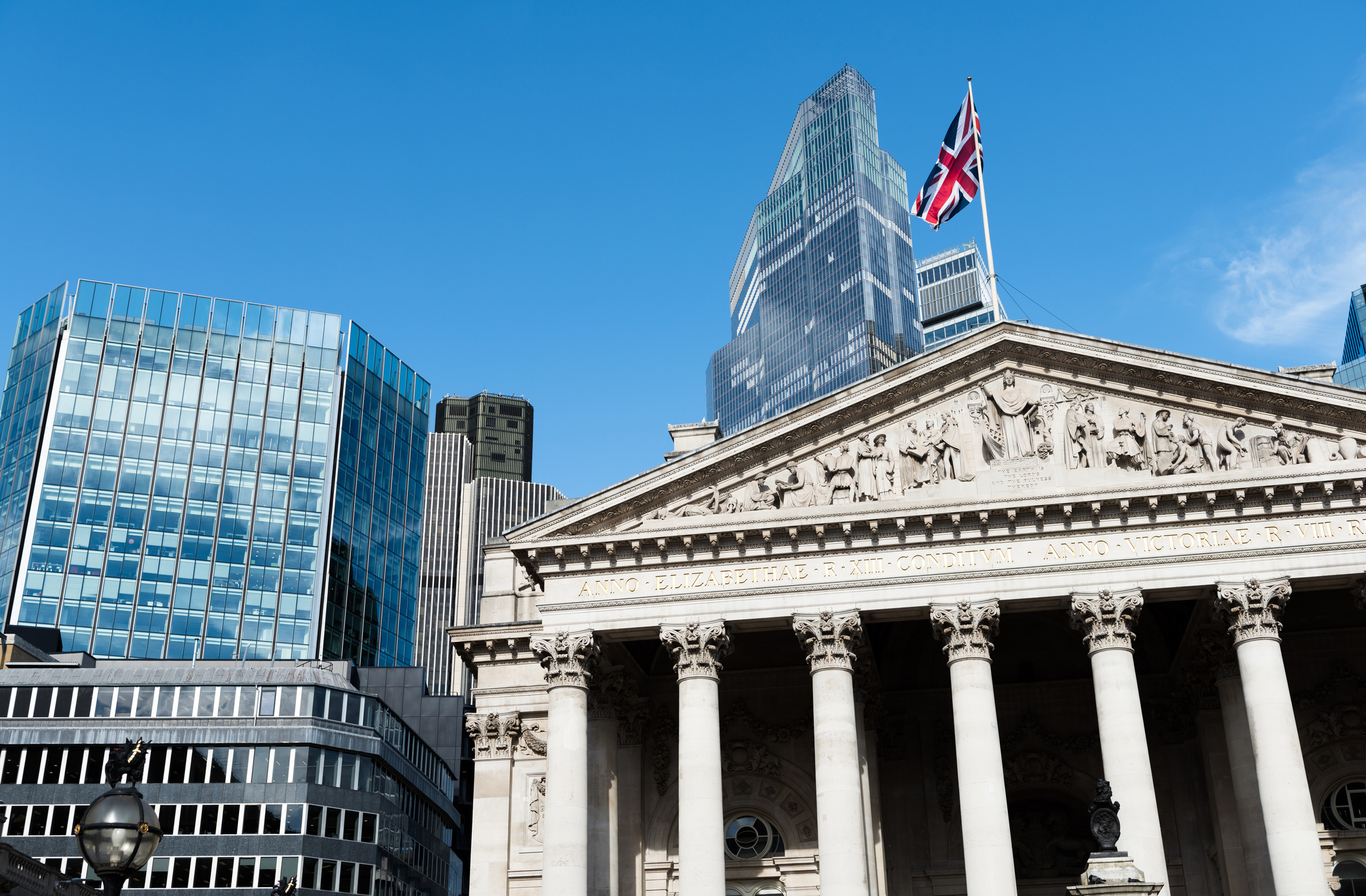FTSE 100 dividend forecast slips – should you buy UK equities?
Analysts have dialled back their FTSE 100 dividend forecasts, but UK equities could still offer an attractive yield overall


Get the latest financial news, insights and expert analysis from our award-winning MoneyWeek team, to help you understand what really matters when it comes to your finances.
You are now subscribed
Your newsletter sign-up was successful
Want to add more newsletters?

Twice daily
MoneyWeek
Get the latest financial news, insights and expert analysis from our award-winning MoneyWeek team, to help you understand what really matters when it comes to your finances.

Four times a week
Look After My Bills
Sign up to our free money-saving newsletter, filled with the latest news and expert advice to help you find the best tips and deals for managing your bills. Start saving today!
Analysts have tempered their dividend expectations slightly and now expect the FTSE 100 to pay out £78.5 billion in 2024 as a whole, according to AJ Bell’s dividend dashboard. At the start of this year, they were forecasting £79.7 billion.
While this figure isn’t too far short of 2018’s all-time high of £85.2 billion, it also means the FTSE 100 will have delivered almost no dividend growth this year compared to 2023.
UK equities could still be worth a look for income-focused investors, though.
MoneyWeek
Subscribe to MoneyWeek today and get your first six magazine issues absolutely FREE

Sign up to Money Morning
Don't miss the latest investment and personal finances news, market analysis, plus money-saving tips with our free twice-daily newsletter
Don't miss the latest investment and personal finances news, market analysis, plus money-saving tips with our free twice-daily newsletter
The FTSE 100 is currently offering a dividend yield of around 3.6%. This doesn’t sound great when you consider cash savings accounts currently pay up to 4.85% – and with no investment risk.
However, this dividend yield doesn’t take other forms of cash return into consideration – such as buyback activity and takeover moves.
When these other forms of cash return are included, the FTSE 100 yields 6.5% overall.
By casting their gaze wider to include mid-cap companies as well (tracking the FTSE 350, for example), investors could potentially bolster their yield further. The FTSE 350 offers a total cash yield of 8.3%. Again, this includes buybacks and takeovers as well as dividends.
Russ Mould, investment director at AJ Bell, points out that this compares favourably to the Bank of England base rate, 10-year government bond yields and the headline rate of inflation. These are 4.75%, 4.6% and 2.6% respectively.
Of course, as well as income, equities also offer the potential for share price growth. The FTSE 100 is up around 5% year-to-date at the time of writing, but has underperformed its US and global counterparts.
UK dividend outlook for 2025
Analysts currently expect the FTSE 100 to pay out £83.6 billion in dividends in 2025, a 6.5% increase compared to 2024.
Total pre-tax income (an important indicator of a company’s financial health and ability to pay dividends) is also expected to reach £248.8 billion, according to AJ Bell.
This figure would constitute a new peak, although Mould points out that the forecast has slipped in the past three months, mainly due to weakness in oil and metal prices. This has had a knock-on effect on oil and mining companies.
Investors should also be wary of concentration risk. Just 10 companies are expected to pay out 54% of total FTSE 100 dividends in 2024. The top 20 are expected to pay 71%.
Commenting on the broader outlook and how it could translate into investor flows, Mould says: “It may be that stronger global economic growth and upgrades to earnings and dividend forecasts are required before the UK really catches investors’ imagination once more, despite its potential yield appeal.
“That appeal rests primarily on its forecast forward yield of 3.6% for 2024 and 3.9% for 2025, based on ordinary dividend payments, with £3.3 billion in special dividends on top from HSBC, Associated British Foods and Berkeley.
“Further cash returns come in the shape of share buybacks, which are nearing prior-peak levels, and takeover activity, with almost 50 UK-listed firms on the receiving end of a closed or live approach.”
Should you buy UK equities?
The domestic market offers strong income opportunities, but an important question for investors is whether they want to opt for this or buy into a market with greater growth potential.
For context, the FTSE 100 has delivered an annualised return of just over 6% over a five-year period. Meanwhile, the MSCI World has delivered 13% and the S&P 500 has delivered almost 16%.
Proponents of UK equities say they are undervalued, making them cheap compared to their global and US counterparts. To benefit from this and reap outsized share price returns, though, there would need to be a catalyst for a re-rating.
“The million-pound question is when will the market re-rate?,” say Ben Russon and Richard Bullas, co-heads of UK equities at investment firm Martin Currie. “That we cannot predict. What we do know is that the UK stock market offers incredible value; those who are invested when it finally re-rates could be richly rewarded.”
The good news is that investors are at least being paid for their patience, enjoying a decent overall cash yield in the meantime.
Get the latest financial news, insights and expert analysis from our award-winning MoneyWeek team, to help you understand what really matters when it comes to your finances.
Katie has a background in investment writing and is interested in everything to do with personal finance, politics, and investing. She previously worked at MoneyWeek and Invesco.
-
 Can mining stocks deliver golden gains?
Can mining stocks deliver golden gains?With gold and silver prices having outperformed the stock markets last year, mining stocks can be an effective, if volatile, means of gaining exposure
-
 8 ways the ‘sandwich generation’ can protect wealth
8 ways the ‘sandwich generation’ can protect wealthPeople squeezed between caring for ageing parents and adult children or younger grandchildren – known as the ‘sandwich generation’ – are at risk of neglecting their own financial planning. Here’s how to protect yourself and your loved ones’ wealth.
-
 Fund inflows hit a six-month high in November – where are investors putting their money?
Fund inflows hit a six-month high in November – where are investors putting their money?Investors returned to the financial markets amid the Autumn Budget in November 2025 but caution remains.
-
 The top stocks of 2025 - did you pick a winner?
The top stocks of 2025 - did you pick a winner?Last year was a chaotic one for the stock market, but which stocks did investors buy the most of?
-
 Stock market turmoil: ‘Should I move money out of investments and into cash instead?’
Stock market turmoil: ‘Should I move money out of investments and into cash instead?’As global stock markets go into turmoil over Trump tariffs, you may be wondering if your money is safe or whether you should sell your shares and move to the so-called safety net of cash accounts
-
 The top stocks in the FTSE 100
The top stocks in the FTSE 100The FTSE 100 celebrated its best year since the global financial crisis in 2025 and has hit new highs early this year. Which are the top stocks that drove last year's gains?
-
 FTSE 100 dividends: where to find the best yields for UK equities
FTSE 100 dividends: where to find the best yields for UK equitiesFTSE 100 dividend forecasts have sagged but investors can still find good yields in UK equities with payments expected to reach more than £80 billion in 2025
-
 Burberry dumped out of the FTSE 100 after 15 years - here's everything you need to know
Burberry dumped out of the FTSE 100 after 15 years - here's everything you need to knowBurberry loses its place to Hiscox, while tech firm Raspberry Pi is promoted to the FTSE 250 after listing in July.
-
 Relx outperforms: should you buy this FTSE 100 success story?
Relx outperforms: should you buy this FTSE 100 success story?Relx, a fast-growing risk management and analytics group is benefiting from artificial intelligence
-
 Hargreaves Lansdown takeover: what it means for your money
Hargreaves Lansdown takeover: what it means for your moneyBritain’s biggest investment platform has agreed a £5.4 billion takeover. What does it mean for shareholders and customers?
